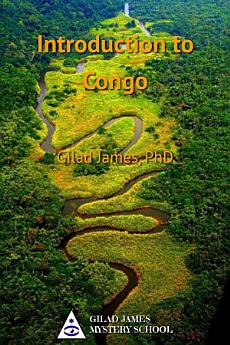Introduction to Congo
Gilad James Mystery School
ইবুক
86
পৃষ্ঠা
family_home
যোগ্য
info
reportমূল্যাংকন আৰু পৰ্যালোচনা সত্যাপন কৰা হোৱা নাই অধিক জানক
এই ইবুকখনৰ বিষয়ে
The Democratic Republic of Congo, commonly known as Congo, is a central African country that is rich in natural resources such as coal, cobalt, and copper. It is a country that has been ravaged by colonialism, civil wars, and resource exploitation. It is home to over 80 million people, and despite being one of the most resource-rich countries in the world, the majority of the population lives in poverty. Congo is the second-largest country in Africa, and it shares borders with nine other African countries. Its history is complex, and it has seen colonization by the Belgians, which lasted for over 75 years, and multiple civil wars that have resulted in the loss of millions of lives. Today, the country is still struggling with political instability, corruption, and a struggling economy. However, it has also seen some progress in recent years, with peaceful transitions of power and a growing economy. The challenges in Congo are numerous, but there is also hope that the country can overcome them and fulfill its potential.
এই ইবুকখনক মূল্যাংকন কৰক
আমাক আপোনাৰ মতামত জনাওক।
পঢ়াৰ নির্দেশাৱলী
স্মাৰ্টফ’ন আৰু টেবলেট
Android আৰু iPad/iPhoneৰ বাবে Google Play Books এপটো ইনষ্টল কৰক। ই স্বয়ংক্রিয়ভাৱে আপোনাৰ একাউণ্টৰ সৈতে ছিংক হয় আৰু আপুনি য'তে নাথাকক ত'তেই কোনো অডিঅ'বুক অনলাইন বা অফলাইনত শুনিবলৈ সুবিধা দিয়ে।
লেপটপ আৰু কম্পিউটাৰ
আপুনি কম্পিউটাৰৰ ৱেব ব্রাউজাৰ ব্যৱহাৰ কৰি Google Playত কিনা অডিঅ'বুকসমূহ শুনিব পাৰে।
ই-ৰীডাৰ আৰু অন্য ডিভাইচ
Kobo eReadersৰ দৰে ই-চিয়াঁহীৰ ডিভাইচসমূহত পঢ়িবলৈ, আপুনি এটা ফাইল ডাউনল’ড কৰি সেইটো আপোনাৰ ডিভাইচলৈ স্থানান্তৰণ কৰিব লাগিব। সমৰ্থিত ই-ৰিডাৰলৈ ফাইলটো কেনেকৈ স্থানান্তৰ কৰিব জানিবলৈ সহায় কেন্দ্ৰত থকা সবিশেষ নিৰ্দেশাৱলী চাওক।








